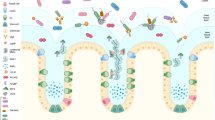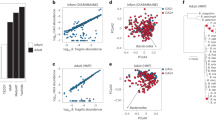Abstract
SOME secretions of some organisms found to be inimical to some metabolic step necessary to the normal processes of some other organisms have come to be referred to as 'antibiotics'1,2. As has been pointed out by Lucas3, it seems likely that it will be found profitable to regard such secretions as special cases of that great class of substances, distinguished by being physiologically active, the study of which constitutes a large branch of comparative physiology, and to consider their effects in terms of the evolution, by natural selection, of the organisms concerned. Their adverse effects on some organisms are presumably an example of these organisms not being adapted in a particular respect, comparable, in principle, with many other examples in ecology.
Similar content being viewed by others
Article PDF
References
Salisbury, E. J., Nature, 153, 170 (1944).
McIlwain, H., Nature, 153, 300 (1944).
Lucas, C. E., Nature, 153, 378 (1944).
Author information
Authors and Affiliations
Rights and permissions
About this article
Cite this article
'ESPINASSE, P. Effects of Secretions. Nature 154, 610 (1944). https://doi.org/10.1038/154610a0
Issue Date:
DOI: https://doi.org/10.1038/154610a0
Comments
By submitting a comment you agree to abide by our Terms and Community Guidelines. If you find something abusive or that does not comply with our terms or guidelines please flag it as inappropriate.



